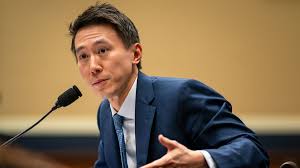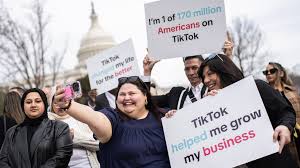
INDIANA – The fate of TikTok is mired in uncertainty after President Biden signed a potential ban into law last week.

Both lawmakers and security experts have said there are risks that the Chinese government could use ByteDance to access sensitive data belonging to its 170 million U.S. users or spread propaganda.
President Joe Biden signed the bill Wednesday that could lead to a nationwide TikTok ban. Parent company ByteDance vows to fight.

“Rest assured, we aren’t going anywhere,” its chief executive, Shou Chew, said in a video posted to the platform. “We are confident and will keep fighting for your rights in the courts.”
TikTok can continue to operate in the United States if ByteDance sells it within 270 days, or about nine months, a time frame that the president could extend to a year. Analysts estimate that the price for the U.S. portion of TikTok could be tens of billions of dollars.
The last time the government tried to force ByteDance to sell TikTok was in 2020. The company held talks with software companies Microsoft, Oracle, and Walmart. An agreement was reached but never materialized.

The issue could take months or even years to settle, during which the app would probably continue to function for U.S. consumers.
TikTok is likely to start by challenging the measure in the courts.
Law experts say TikTok’s case will be based on the First Amendment. The company is expected to argue that a forced sale could violate its users’ free speech rights because a new owner could change the app’s content policies and reshape what users can freely share on the platform.
A vocal bill opponent, the American Civil Liberties Union, may also join the legal fight.
The government will need to make a strong case that ByteDance’s ownership of TikTok requires limiting speech because of national security concerns.







.png)











